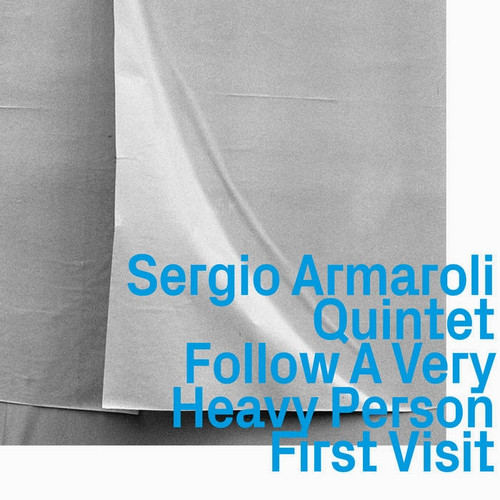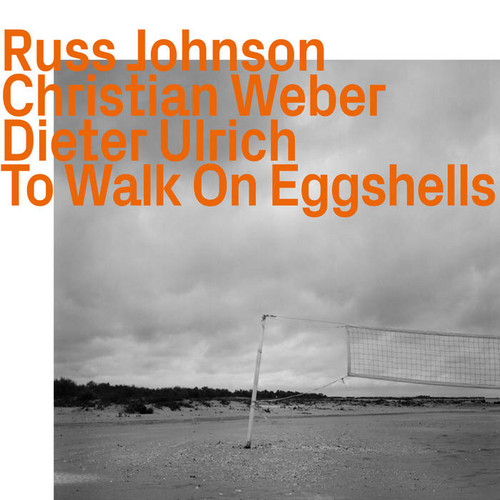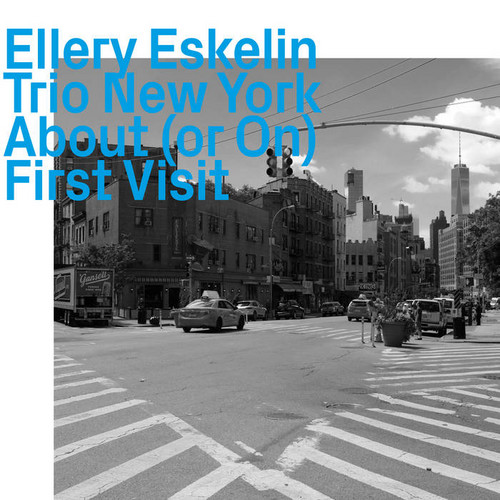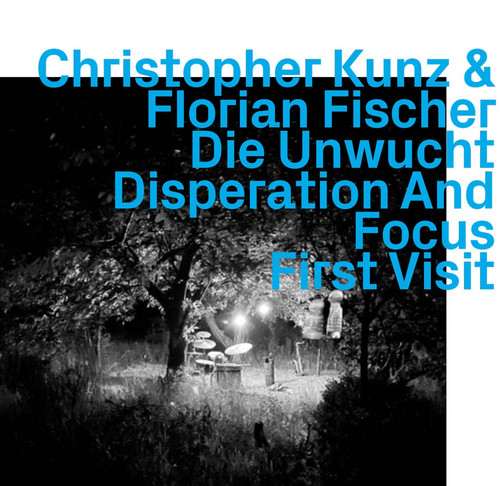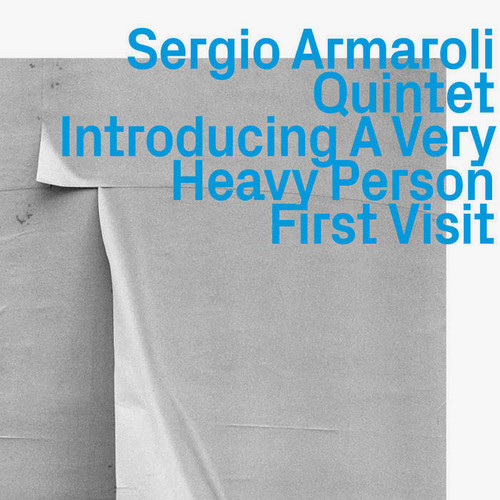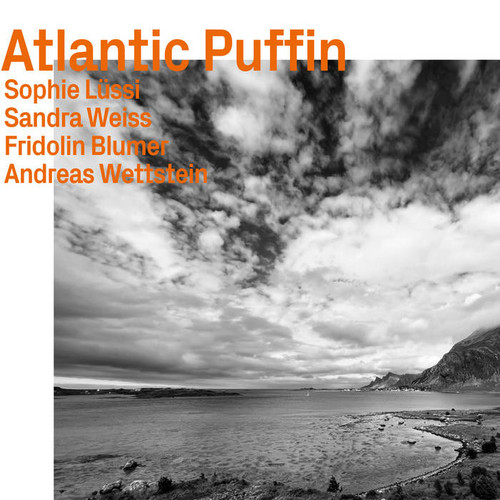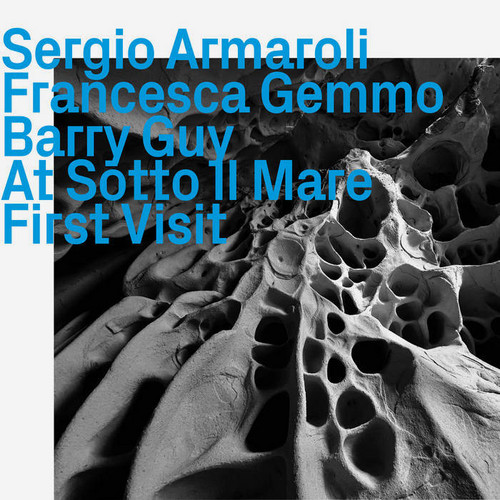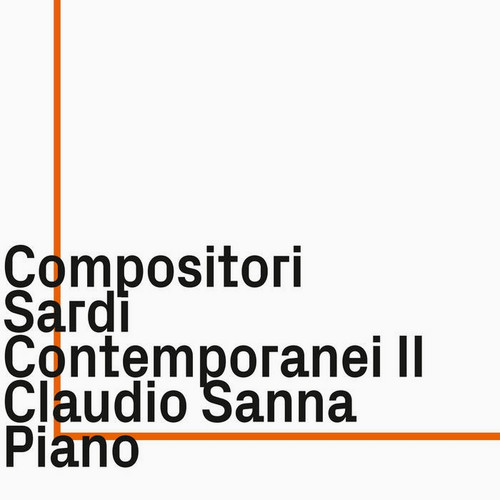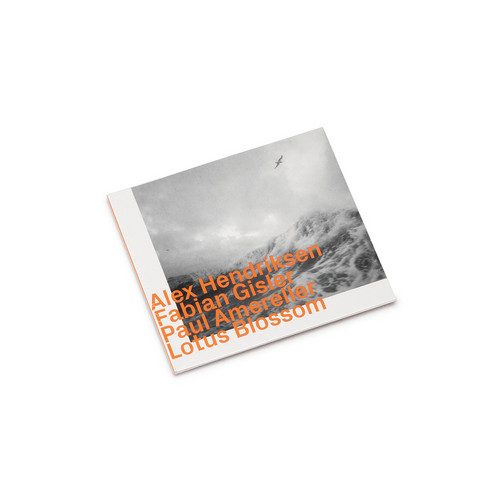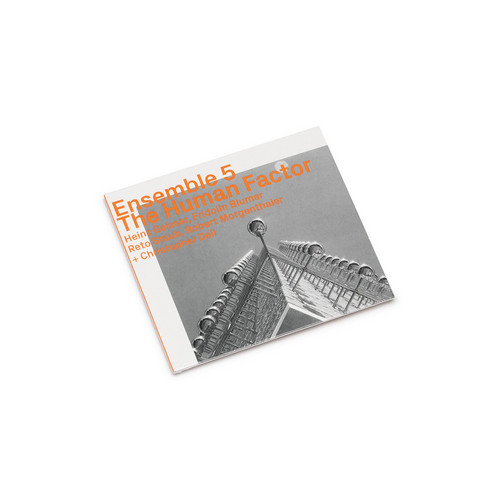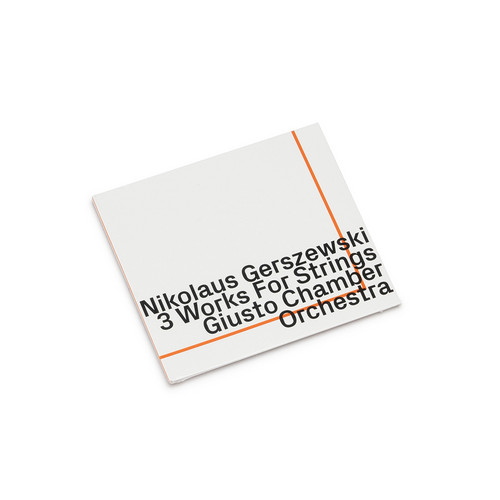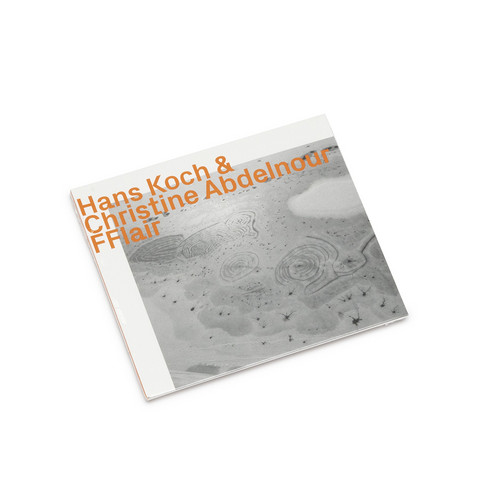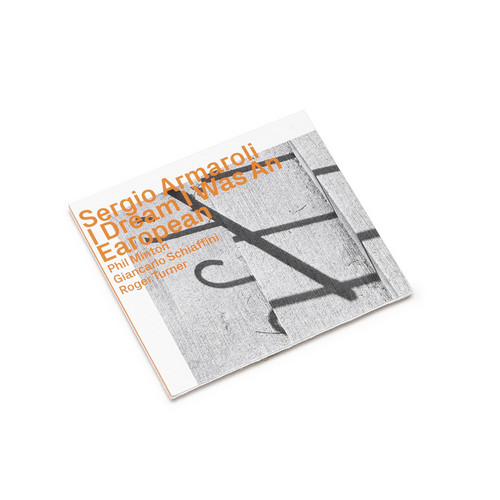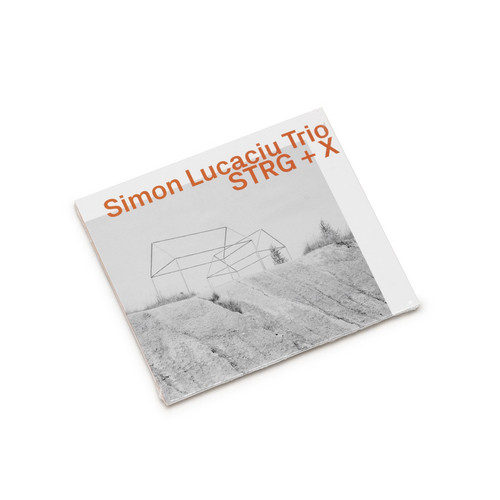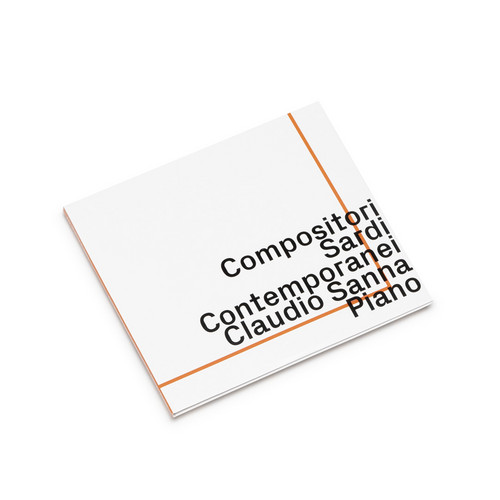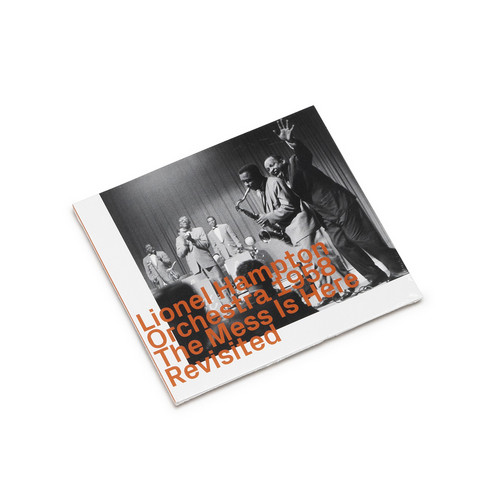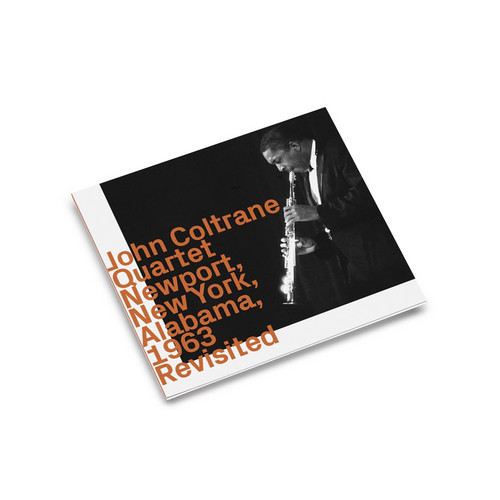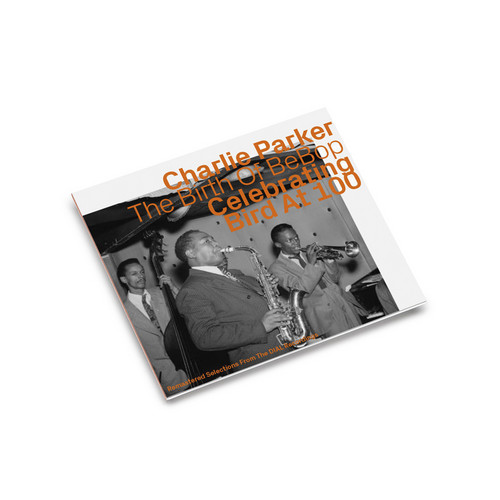★ezz-thetics
Follow A Very Heavy Person, First Visit
"First visit to the audio equivalent of a graphic novel. Follow A Very Heavy Person is more than an album—it is an experience, an inquiry, an adventure into the unknown, defying easy categorization and existing in the liminal space between music, poetry, and philosophy. Armaroli and his quintet have crafted something truly singular—a journey through sound that is both timeless and profoundly rooted in the ephemeral beauty of the present moment." - Mark Corroto
To Walk On Eggshells
"Christian Weber said in an interview for “Jazz’N’More": No matter how I move along the timeline, my attention is focused on what is to come. At the same time, I always keep in mind what happened before, without analyzing. This way, I avoid the improvisation becoming arbitrary. Both arbitrary openness and narrow restriction, neither suits me." And therein lies the whole secret of this record and ultimately the definition of great art: it is the ability of a musician to have control over space an…
About (or On), First Visit
"A standard takes on a new shape when it is realized through Trio New York’s methods. Their improvised preludes promote refreshed readings studded with bright accents and pungent embellishments, reinforcing the qualities that have enabled these tunes to endure, be it the sweet sentimentality of “Memories of You” or the devil-may-care of “Just One of Those Things.” By embracing the tenets of free improvisation – experimentation, discovery, and, on a good night, elucidation – Trio New York has tra…
Die Unwucht
Big Tip! As poets from Shakespeare to Heine have recognised, “the forest” is not just about grandeur and most expansive of gestures; it is also about intimacy and there is a remarkable intimacy to Christopher Kunz’s and Florian Fischer’s music. The forest is both inhuman, wild, and, because it houses us and to a degree depends on us, profoundly humane. You’ll find these qualities here as well. Focus, breathe and listen. (Brian Morton)
Introducing A Very Heavy Person, First Visit
First visit to the audio equivalent of a graphic novel.
Atlantic Puffin
"This, it seems to me, is the great strength of Sophie Lüssi’s music here on Atlantic Puffin. It is clearly skilled and doesn't deal in casual approximations. It is built on solid technique, a brilliant appropriation of classical violin methods in the interests of improvisation. But her music, which draws on folk as well as canonical forms, is one that emanates from and addresses the whole person. It's generous music, kindly and open, and in its gentle humour it engages a part of the spirit that…
At Sotto Il Mare, First Visit
"No music making can be entirely non-idiomatic. Removing the metaphor, the claim is that it is characterless, without personality. But despite his best intentions, perhaps, one can hear a range of influences in Bailey’s own work – even if jazz isn't one of them. And the present album shows that "non-idiomatic" is the wrong description for much free improvisation. The common description "abstract" is also misleading. All music is abstract in form, humane in utterance." – Andy Hamilton
Compositori Sardi Contemporanei II
"Today’s wine tasting is once again hosted by sommelier Claudio Sanna. He presents more local Sardinian varieties with a round of flights, much like the 2022 release Compositori Sardi Contemporanei. Instead of grape cultivars and vintner, Sanna presents multiple composers and performers for you to sample, not with your tongue but your ears. Just like a wine tasting experience, these tracks are a sample of the rich and fertile Sardinian landscape of creative musicians." – Mark Corroto
Kon.Takte
"Kontakte makes contacts between acoustic instrumental sounds and electronic music, its multidimensionality and its invitation to time travel, all promised a future in which humanity might transcend the limitations of material reality. In Spiegelung and Geschichte der Gewalt the electronic sounds emerge as transformations of this reality." – Christopher Fox
Live at Jazz Festival Willisau 2023, First Visit
“We are in the business of transformation, applying our knowledge of improvising together for twenty-five years, interwoven with our resonance with these melodies and forms. We have found our collective way with honouring what these pieces express to us, through our personal language, comments Gerry Hemingway.” He agrees that there's a concept of authenticity”. “The feeling of swing is our own, but shaped by the pieces we are playing”. Authenticity is acquired through assimilating traditions, an…
Lotus Blossom
"To me, these guys sound as if they have a story to tell and enough confidence to believe that they can tell and retell the old stories in new and exciting ways. Hendriksen and Gisler have formed together on this kind of thing, but if it remains true in jazz that rhythm and the percussionist are at the heart of every new step forward, then Paul Amereller’s role in the trio is crucial. No one will mistake him for anything but a contemporary, but he plays in full knowledge of the history of the mu…
The Human Factor
"It is a message, and you will hear it sounding firmly through the various pieces that make up The Human Factor, that tells us much about how we might live together: sharing, giving way, simple giving, lifting up, helping ... above all, listening ..." - Brian Morton
3 Works for Strings, Giusto Chamber Orchestra
"Each composition arises from a clear idea that the listener can grasp. That is their beauty, I’d argue – there’s no need for, or possibility of, any process of beautification. They are conceptual art in the broadest sense, but vividly concrete in their sonorous properties. So they are a paradigm of musical art – for music is an art that is abstract in form, concrete in utterance." - Andy Hamilton
FFlair III
"Basically, we witness an intimate dialogue between two improvisers. If there had not been a special circumstance leading to this result. Christine Abdelnour and Hans Koch could not hear each other. In fact, "FFlair" is based on two separately recorded solo improvisations, which were superimposed at the end. Mind you, without any subsequent editing." - Rudolf Amstutz
I Dream I Was An Earopean
Temporary Super Offer! "Only ghosts don’t make footfalls (another Beckett title!) that we can hear, don’t need to open and close doors to effect passage. These men together are enacting over a longer duration a strong sense of life- as-lived. They are conspiring, not in the political or legal sense, but simply breathing-together. It isn’t forbiddingly abstract music. It simply enacts our various ways of living together. Take a deep breath and enjoy." - Brian Morton
STRG + X
Temporary Super Offer! 'The CD’s title is borrowed from computer language: STRG + X is the key combination for “cut to the clipboard” to be temporarily stored and pasted somewhere else at a later time. Perhaps the most important quality of this carefully thought-out yet anything but cerebral music: it is aware of its means and can twist and turn and rearrange them as it pleases, in which case improvised contexts create their own forms and play with original material in a fresh, new way. This is …
Compositori Sardi Contemporanei
Temporary Super Offer! Compositori sardi contemporanei produced by the Swiss label Hat Hut Records Basel and directed by Werner X. Uehlingeris a snapshot of the Sardinian contemporary music world with an initial focus on eight composers Luciano Chessa, Andrea Granitzio, Paolo Pastorino, Riccardo Collu, Giuseppe D'Amico, Giovanna Dongu, Claudio Sanna, and Luca Sirigu. The project is conceived as a work in progress, therefore with constant updating of the repertoire and attention to what is happen…
The Mess Is Here 1958, Revisited
Recorded live 1958 in Stuttgaert. First time on CD. Performed by: Eddie Williams, Art Hoyle, Eddie Mullens, Dave Gonzales, Macky Kasper trumpets; Louis Blackburn, Wade Marcus, Larry Wilson, trombones; Leon Zachary, Bobby Plater, alto saxophones; Andy McGhee, Gerald Weinkopf, tenor saxophones; Lonnie Shaw, Werner Baumgart, baritone saxophones; Lionel Hampton, vibraphone & piano; Oscar Dennard, piano; Billy Mackel, guitar; Julius Browne, fender bass; Wilbert Hogan drums; Cornelius "Pinocchio" Jame…
Newport, New York, Alabama, 1963, Revisited
John Coltrane played the long game. Longevity in life wasn’t his lot; his fortieth year being his final bow. That circumscribed career, particularly in its final decade, evinced a trajectory of creative ascendancy that was as indelible to improvised music as it was omnipresent in impact. Charlie Parker arguably wears the posthumous mantle of most influential saxophonist, but Coltrane suggests a close contender in terms of ineluctable clout on those who play the instrument.
Practice and the pursu…
The Birth of BeBop - Celebrating Bird at 100 vol 1
The incomparable life and extraordinary, trailblazing career of jazz titan and influential composer Charlie Parker will be honored throughout 2020 with a worldwide celebration commemorating the 100th anniversary of his birth (August 29, 1920). Lovingly dubbed Bird 100 after the nickname of the preeminent alto saxophonist who was one of the fathers of bebop and progenitors of modern jazz, the centennial will include a host of major initiatives including exciting new music releases, a tribute tour…
